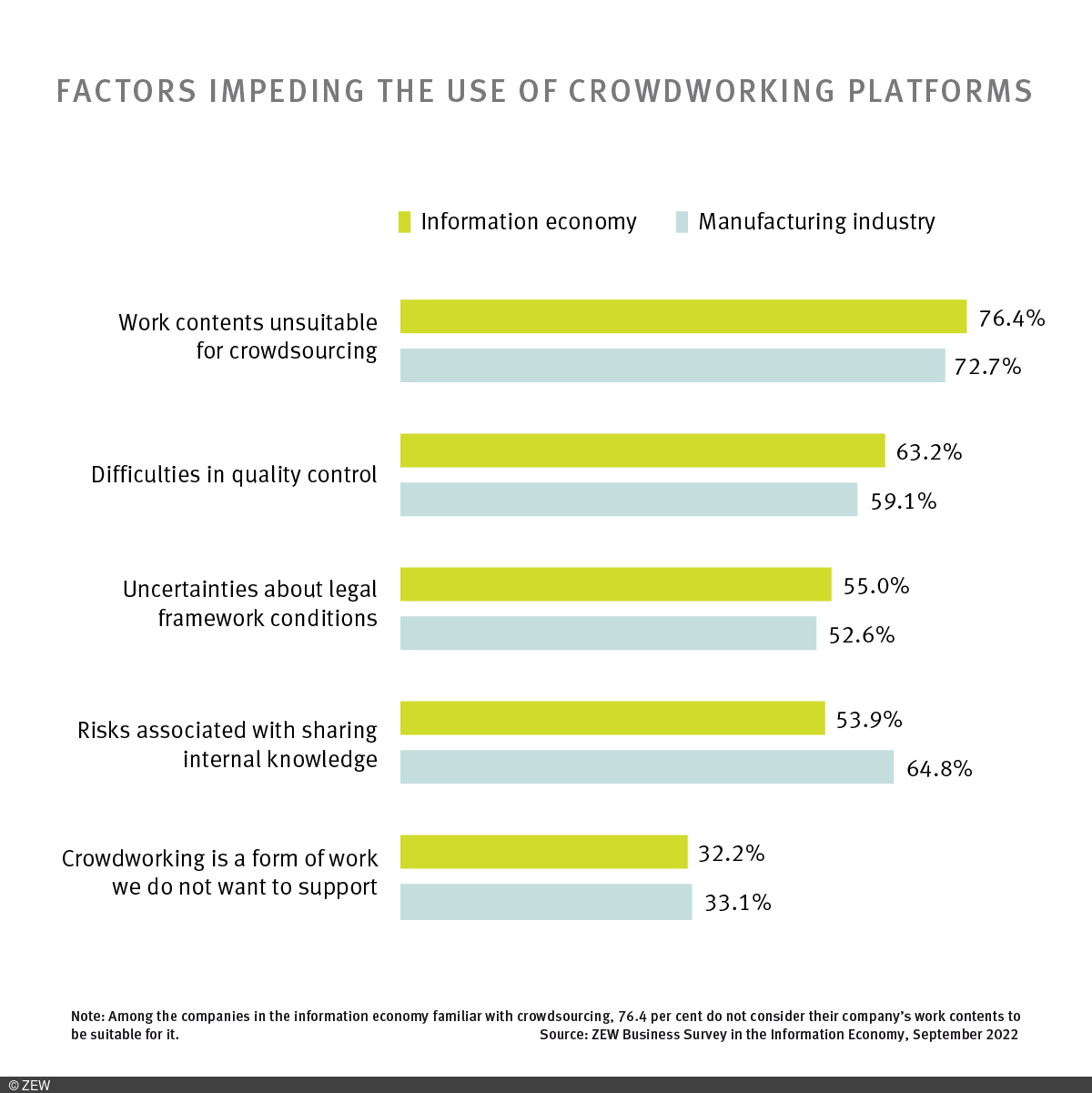Use of Crowdworking Platforms Doubled Since the Start of the Pandemic
ResearchThe use of crowdworking platforms by companies in Germany has risen significantly compared to the time before the COVID-19 pandemic. “At the moment, 6.4 per cent of companies in the information economy and 4.9 per cent of companies in the manufacturing industry use crowdworking platforms. An additional one to two per cent of companies plan to start using crowdsourcing by the end of 2023,” says Dr. Daniel Erdsiek, researcher in ZEW’s “Digital Economy” Unit, commenting the results of a recent ZEW survey.
New forms of employment have emerged in the wake of technological progress. In addition to the traditional labour market, online platforms now offer services to manage work assignments. On the one hand, the platforms allow companies to contract out work that must be physically performed at an agreed location, such as passenger transport or delivery services. On the other hand, companies can use these online platforms to contract out work that can be done entirely online and is thus not tied to a specific location. This form of employment is called “crowdworking”, or “crowdsourcing”, and refers to the use of online platforms to outsource traditionally in-house tasks and projects to external workers, so-called “crowdworkers”. The tasks carried out by these crowdworkers range from simple tasks, which only require a few clicks, to the completion of complex tasks and entire projects, e.g. in the field of design or web programming.
Based on repeated ZEW surveys, representative results on the use of crowdworking platforms by companies in Germany are available, dating back to 2014 for the information economy and to 2016 for the manufacturing industry. In both sectors, a continuous but relatively small increase in the (planned) use of such online platforms can be observed until 2018. In 2018, the share of companies using or planning to use crowdsourcing was 4.5 per cent in the information economy and 3.2 per cent in the manufacturing industry. By the time of the September 2020 survey, these proportions had more than doubled in both sectors, to 9.5 per cent and 6.9 per cent respectively. Part of this significant increase between 2018 and 2020 could result from necessary workplace adjustments during the pandemic and the rising demand for example for external IT experts. The results of the latest survey in September 2022 show that the rapid increase in (planned) usage rates observed in previous years continues. Currently, 6.4 per cent of companies in the information economy and 4.9 per cent in the manufacturing industry use crowdsourcing. In both sectors, an additional one to two per cent of companies plan to use crowdsourcing in future. “Compared to 2020, the (planned) usage rates have dropped by roughly one percentage point, but they are still twice as high as before the pandemic,” says Erdsiek.
Barrier to the use of crowdworking platforms
“The main factor hindering the use of such platforms, according to companies, is that they do not see their work contents as suitable for crowdsourcing,” states Erdsiek. In the information economy and manufacturing industry, this is true for over 70 per cent of companies who are familiar with the term “crowdworking”. Other factors impeding the use of crowdworking include difficulties in quality control of tasks done via online platforms and uncertainties about legal framework conditions. Close to 54 per cent of companies in the information economy and 65 per cent in manufacturing are concerned about the risks associated with sharing internal knowledge on online platforms. In both sectors, one third of all companies report that crowdsourcing is a form of work they do not want to support.


